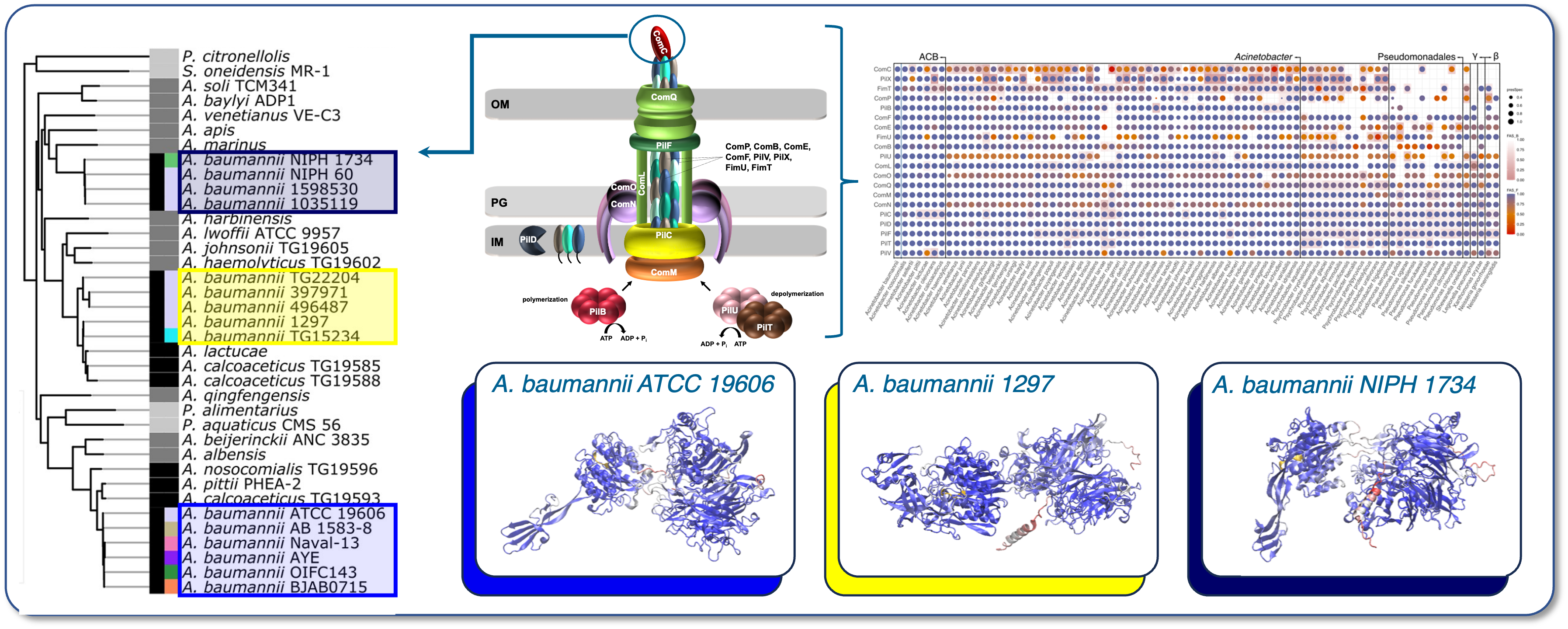Understanding why some bacterial strains are more virulent than others—both across and within species—is a central challenge in infectious disease biology. Genomic differences underpin much of this variability, but pinpointing which variations matter, and why, remains unresolved.
In this PhD project, you will investigate how genomic variation influences virulence, focusing on bacterial adhesins—key proteins mediating host-pathogen interactions. Using a multi-scale bioinformatics approach, your goal will be to map the composition and diversity of the adhesome (the full complement of adhesins) across multiple bacterial pathogens, and to correlate this diversity with virulence phenotypes. Ultimately, your project will uncover how adhesome variability contributes to pathogen virulence.
You will integrate genomic and phenotypic data (in collaboration with DC1) to build the StradiVarious Variant Collection, a comprehensive database of bacterial strains with varying virulence profiles. On this basis, you will investigate the evolutionary trajectories of virulence-associated proteins, especially adhesins, across diverse bacterial genomes. You will explore and chart inter- and intraspecific variation in the adhesome using feature-architecture-aware phylogenetic profiling and pan-genome graphs. On this basis, you will identify adhesin orthologs with altered structures, evolutionary histories, or domain architectures as potential drivers of altered bacterial virulence. You will apply supervised and unsupervised machine learning to correlate adhesin variation with virulence and generate a shortlist of candidates for experimental validation in partner labs.


We are recruiting 15 fully-funded doctoral candidates for 36-month positions across our European network, with guaranteed secondments in both academic and industrial partner institutions.
We are recruiting 15 fully-funded doctoral candidates for 36-month positions across our European network, with guaranteed secondments in both academic and industrial partner institutions.